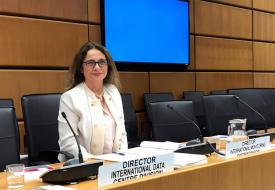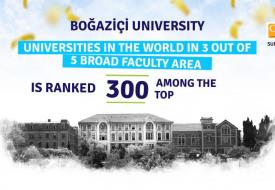The next financial crisis will be much more destructive
Prof. Dr. Vedat Akgiray, while discussing the reasons behind financial crises and their socioeconomic effects in his book, he also explains what ‘good finance’ is and why the world needs a better financial system.
Environmental destruction, increasing wealth and income disparity, loss of trust towards institutions, as well as each of these setting a problem, they are also sustaining the biggest problem in front of humanity: extreme ‘financialism’. Vedat Akgiray explains, “We could not even take the necessary lessons from the greatest financial collapse in history in 2008. Everyone, including economic policy makers, central banks, financial authorities and academicians, has failed. There has been an ignorant insistence on outdated models and interpretations. This illogical resistance to change and repeated mistakes have brought us to this day. It looks like the next financial crisis will be much more destructive”.
Akgiray emphasizes that the principle of finance is to bring together the ones who have the money with the ones who need the money. Every other action that does not support this fundamental principle should be questioned. Akgiray advocates that, “Finance is not the art of making money from other people’s money; yet, the commonly accepted understanding today is exactly this. The ones who perform this art the most successfully are the greatest brains! The topics covered in lectures and books rely on this understanding. This shows that we first have to correct the education. Instead of teaching the youth how to design the financial weapons of ‘mass destruction’, we have to explain them the financial weapons of ‘mass benefit’.”
In his book, Akgiray mentions the global demand for a new financial paradigm and that there should be a new social agreement between the politicians, financial market and persons. He explains, “We can have a look at the whole world through the internet and we want the better / the prettier / the latest version of everything. We can call this consumption drunkenness. If we cannot afford what we want, the only solution becomes to get in debt - with credit cards, bank loans, etc., usually without thinking of how to pay back. As the financial sector craves for the client to loan credit and as it became easy to generate credit with the necessary tools, thanks to ‘financial engineering’, it is not a hard task to find a loan. Today the total revenue of the world is $85 trillion and the total debt is around $300 trillion. It is impossible to pay this debt, it will not be paid back, and those people who cannot pay their debts will suffer a lot.
“The first rule of the social agreement that I mention in the book is to refrain from lending money to those who cannot pay back. Helping those in need - if necessary, unrequitedly - is very different from giving a loan of 100 dollars for a new television to a person with a 10 dollar income. First is good, latter is bad. Whenever cost of debt is higher than increase in income and productivity, borrowing is stupid and lending is unethical. The inevitable end is bankruptcy and financial crisis. The decision makers should regulate this correctly. The book, in essence, sets the introduction to the aforementioned social agreement.”
Vedat Akgiray graduated from the Department of Management at Bogazici University in 1980. He received his Master’s Degree in Finance in 1982, Master’s Degree in Economics and PhD Degree in Finance in 1985 at the Syracuse University. While working at the Clarkson University (1986 - 1990), he became an Associate Professor in 1989. He has been lecturing at the Bogazici University since 1991. Prof. Akgiray is one of the founders of Postgraduate Program in Financial Engineering at the Bogazici University and lead the program between 2002 and 2009. In addition, he has been coordinating the PhD Program in Finance at Bogazici University.











